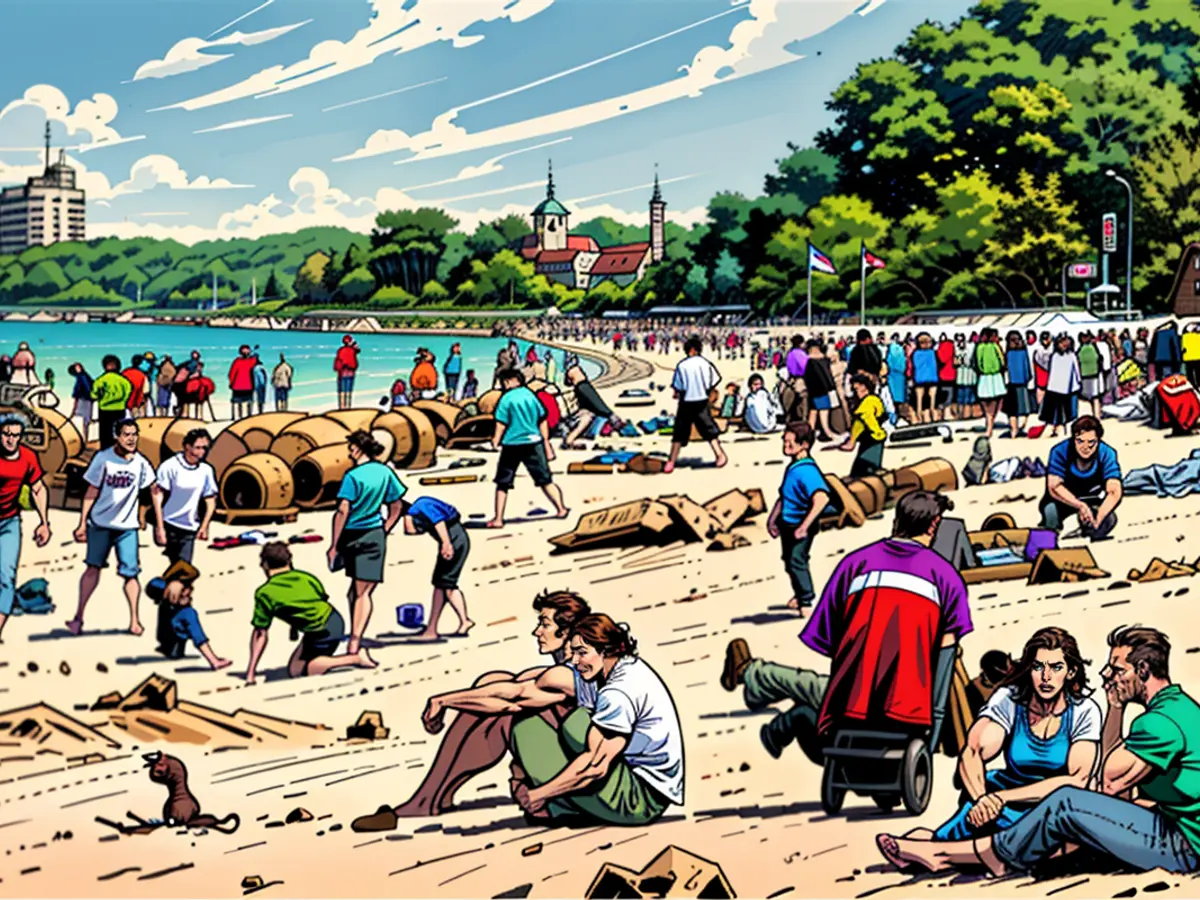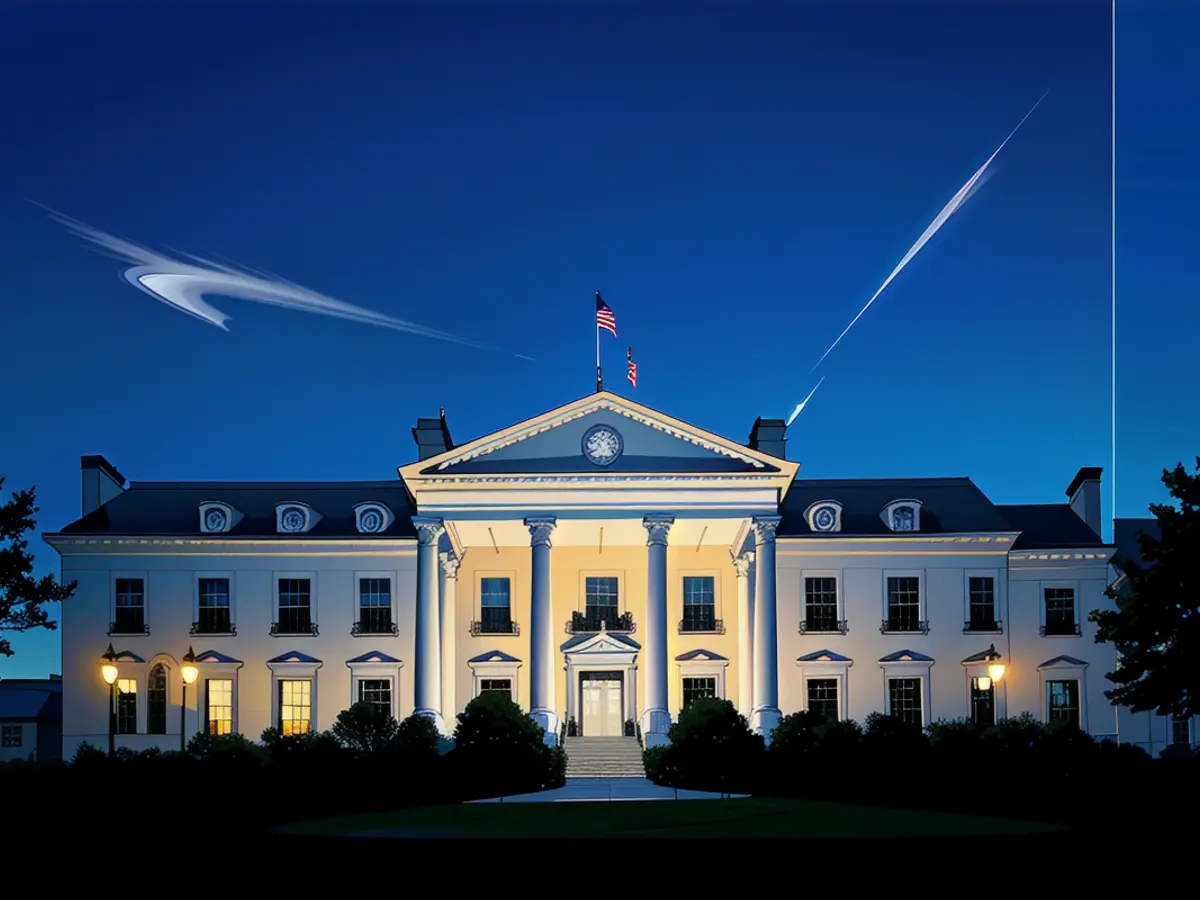Exploring Schleswig-Holstein's Tourism's Potential in Climate Change Adaptation
In light of Bettina Bunge, CEO of Tourism Agency Schleswig-Holstein (TA.SH), revealing interim results, there's a murmur about Schleswig-Holstein's tourism industry potentially pushing for milder summer climates, akin to Scandinavian countries. This concept is coined as "Coolcation," a combination of cooler weather and relaxation. As Bunge suggests, this could be a promising avenue for the tourism sector.
Currently, the tourism industry in Schleswig-Holstein is grappling with a challenging first half of 2024. With a 5.9 percent decrease in camping nights spent to 1.86 million, the once-booming camping sector is experiencing a downturn after the COVID-19 outbreak's aftermath. The number of overall tourists visiting the region during the first half of the year only increased by 0.2%, and overnight stays decreased by 0.3%.
However, Tourism Minister Claus Ruhe Madsen displays an optimistic outlook. Despite the uncertainties, such as the ongoing impact of the Coronavirus and the decline in camping trips, he is pleased with the maintained high levels of overnight stays and tourism revenue in these challenging times. The emphasis on sustainability is strongly reflected in the tourism strategy, as Madsen illustrates, stressing that success isn't just about numbers. Instead, it involves careful consideration of the environment and the long-term well-being of the community.
Notably, regions such as Wyk auf Föhr, Heiligenhafen, Grömitz, and Sylt experienced a decline in overnight stays without camping, highlighting region-specific challenges. Meanwhile, the scarcity of skilled labor is increasingly becoming a concern for businesses in the tourism sector. Madsen proposes potential solutions, including overhauling unemployment benefits, offering flexible working hours, and encouraging more appealing work environments, to attract a larger workforce.
The opposition has voiced criticism towards Madsen, blaming the black-green coalition's ineffective performance for the perceived decline in tourism. However, Bunge remains hopeful for the second half of the year, considering that it contributes a more substantial share to overall results than the first six months. Potential revivals of vacation trends, along with efforts to attract skilled workers, could drive Schleswig-Holstein's tourism sector towards recovery.
Adapting to the "Coolcation" Trend
To stay competitive and adapt to the emerging "Coolcation" trend, Schleswig-Holstein's tourism industry can tap into various strategies:
- Promote Eco-friendliness: Encourage eco-friendly tourism practices in accommodation facilities, integrating renewable energy sources and sustainable waste management. Engaging with local communities is crucial to understand regional environmental challenges and incorporate sustainable practices into tourism activities.
- Highlight Natural Attractions: Offer guided tours to explore unique landscapes, such as the Wadden Sea or the Elbe River. Organize seasonal events celebrating the region's natural beauty and cultural heritage, like winter festivals with ice sculptures, snowshoeing, and cross-country skiing.
- Year-round Tourism: Develop diverse activities available throughout the year, ensuring tourism revenue is spread across different seasons and lessening the burden on popular summer destinations. Winter sports, such as skiing and ice skating, could attract tourists to the colder months.
- Digital Marketing: Promote Schleswig-Holstein as a climate-friendly destination, highlighting its commitment to sustainability and eco-tourism, offering a distinct Coolcation experience. Collaborate with cruise lines to include Schleswig-Holstein in Northern Europe itineraries.
- Infrastructure Investments: Integrate renewable energy sources and encourage sustainable transportation through electric or hybrid vehicles for tour operators and visitors.
By focusing on these strategies, Schleswig-Holstein's tourism industry can not only embrace the "Coolcation" trend but also contribute to a more environmentally sustainable and responsible travel sector.





